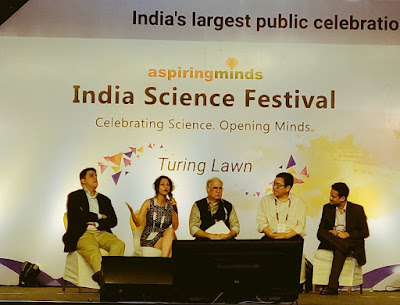Digital absence: The modern day sabbatical?





When you speak of sabbaticals, you perhaps picture a professor of art history sitting at a café in Florence, trying to come up with a new spin on Uffizi art. It seems that academia has usurped this practice that has been enveloped in biblical meaning for the longest of time. This hiatus from work has had the weight of Ten Commandments backing it up, allowing the masses to justify their temporal ceasing to labor. Henceforth, the weekend was born. Granted, this is a rather simplistic interpretation. Of course one needs to take into account other phenomena such as the industrialization era where leisure began to be viewed as not necessarily a waste of time but actually that which could enhance productivity. In fact, these strategic interruptions have served as a signal of the modern era where a society sees its inherent virtue. So the question is not on whether or not it is advisable to desist working for some time but rather, how long is it acceptable to leisure before it is viewed as unproductive? The weekend is now an accepted notion and serves as a common motivation for the average modern day laborer as they “slave” away in their routines of day-to-day work, keeping in mind the reward of a relaxing weekend with family and friends. However, beyond that, the option of time-off for its own sake is rather an alien concept in most private sectors.
Also, who is allowed to temporarily cease from labor and why? Sabbaticals implicitly bring to mind privileged white-collar workers where this is seen as a strategic incentive to sustain and retain this elite working class. And what happens when blue-collar workers embark on the same path? It will usually be perceived as part-time work or ill health, signals of a poor economic climate perhaps. Much like what makes a foreigner an “expat” versus an “immigrant” has more to do with economics than with other social aspects.
And of course, what constitutes as non-working time as new media infiltrates and blurs boundaries on work and play at a constant basis? Obama has raised our level of awareness of the Blackberry addict, the new drug of the digital and mobile era where we are now victims of our own constant and often involuntary urges to immerse in online busyness. Productivity and labor has never become so obviously disassociated as in today’s Web 2.0 era where being engaged during “work” and “working” have become issues of serious concern to the private sector at large. It’s a double-edged sword really. Companies benefit from this compulsion as they can reach their employees, the junkies of new media, even during the sacrosanct weekend. On the other hand, leisure stealthily creeps in during the routines of work life, enveloping their worker bees with the trivia of social life through Facebook, Twitter and Youtube. In fact, the spatial aspect of work, of being at the office to produce is also being challenged as technical mobility and the nature of work has undergone radical transformation one may argue. It may even seem that this laboring elite are their own worst enemies as they compulsively engage with work regardless of location and time.
Pushing this further, taking a digital absence is currently shrouded in controversy as expectations of instant gratification from customers as well as ones own Net addiction propels one to actively and with much effort, disengage from the cybersphere. There is no discreet way of excusing oneself from techno-laboring. It is yet to be seen how long absences from ones own blog or twitter is perceived and how that impacts ones legitimacy in the Web 2.0 world where ones absence is digitally clocked and paraded for one and all.



Comments
Post a Comment